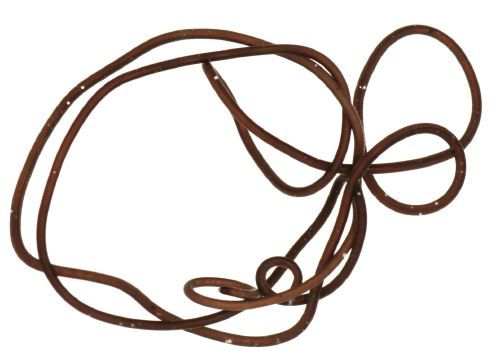 The horsehair worm Gordionus violaceus
The horsehair worm Gordionus violaceus© BioImages, via Encyclopedia of Life, Attribution-NonCommercial-ShareAlike
| Nematoida | ||
| Nematoida | Nematoida |
| Ecdysozoa | Ecdysozoa
└─► |
Nematoda | ||
| Scalidophora | None |
Ecdysozoa | Nematoida | Panarthropoda |
|
Abreviated Dendrogram
|
Contents
Overview |
 The horsehair worm Gordionus violaceus
The horsehair worm Gordionus violaceus© BioImages, via Encyclopedia of Life, Attribution-NonCommercial-ShareAlike |
Nematoida (= Nematoidea, Nematozoa)
poor fossil record, but the group almost certainly would have evolved during the earliest Cambrian
Phylogeny: Ecdysozoa : Panarthropoda + Scalidophora + * : Nematoda + Nematomorpha
Comments: includes two related phyla of rather featureless worms, one of which is a rather small group, the other one of the most successful forms of life on Earth. MAK120416
The term Nematoida was coined by Schmidt-Rhaesa 1996 and 1998 and adopted by Cavalier-Smith 1998 and Peterson & Eernisse 2001. It seems to have edged out Nematoidea (Ehlers et al. 1996) and Nematozoa (Zrzavy et al. 1998), although it was first used in a different context in 1808. (see ToL - Guide to Names Used in the Higher Classification of Animals for a list of these and other taxon and clade names, also Taxonomicon) Nielsen (2001) and Telford et al 2008 list five morphological synapomorphies, although molecular support, though present, is weak. Our phylogeny presents a generally-accepted view of Nematoida as sisters to the Panarthropoda. The likely explanation for their loss of morphological complexity (though not a concomitant loss in developmental life history complexity) is that the Nematoida sprang from a parasitic group. Indeed, the Nematomorpha is entirely parasitic and many of the Nematoda also are parasitic. The free-living nematodes may have become so secondarily. Jack R.Holt Diversity of Life - Ecdysozoa (text slightly modified) MAK120418
| Ecdysozoa | Nematoda |
page MAK120418. All original text content by M. Alan Kazlev Creative Commons Attribution . Other content copyright respective authors or publishers